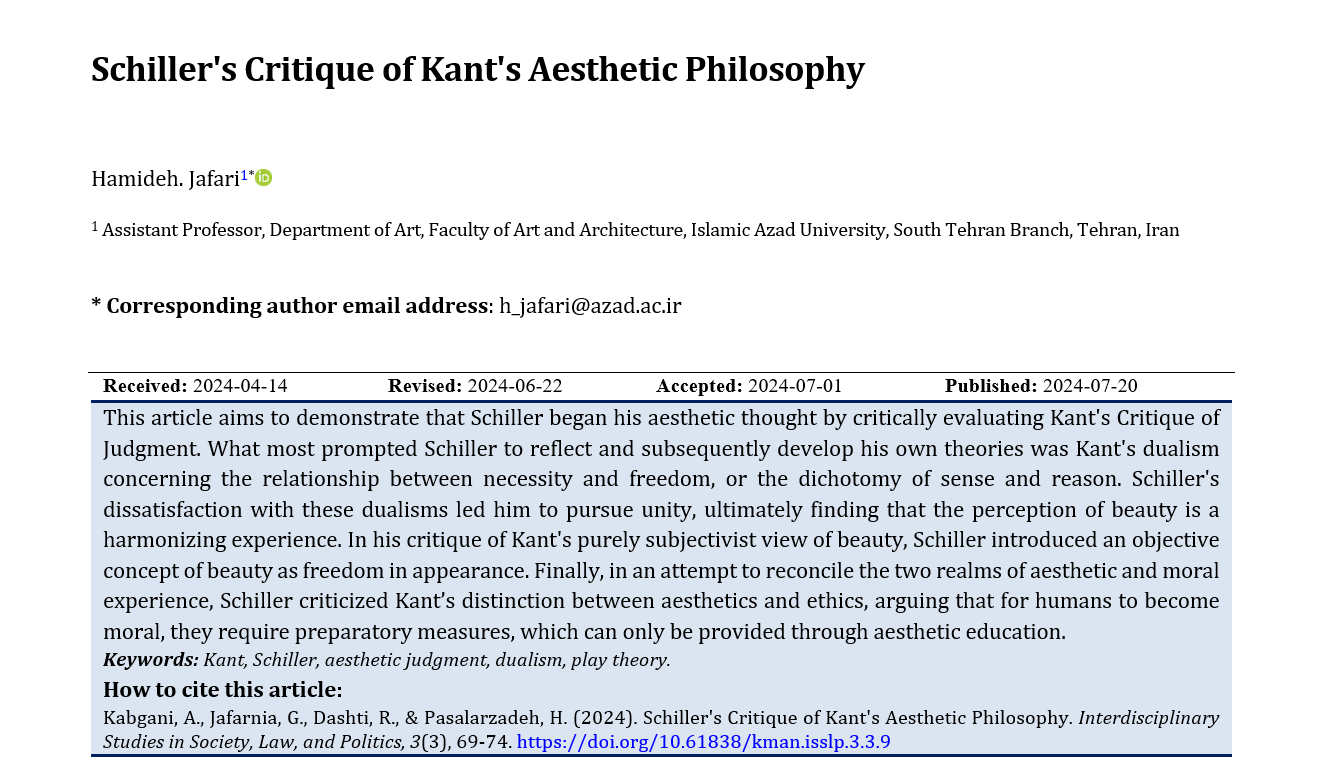Schiller's Critique of Kant's Aesthetic Philosophy
Keywords:
Kant, Schiller, aesthetic judgment, dualism, play theoryAbstract
This article aims to demonstrate that Schiller began his aesthetic thought by critically evaluating Kant's Critique of Judgment. What most prompted Schiller to reflect and subsequently develop his own theories was Kant's dualism concerning the relationship between necessity and freedom, or the dichotomy of sense and reason. Schiller's dissatisfaction with these dualisms led him to pursue unity, ultimately finding that the perception of beauty is a harmonizing experience. In his critique of Kant's purely subjectivist view of beauty, Schiller introduced an objective concept of beauty as freedom in appearance. Finally, in an attempt to reconcile the two realms of aesthetic and moral experience, Schiller criticized Kant’s distinction between aesthetics and ethics, arguing that for humans to become moral, they require preparatory measures, which can only be provided through aesthetic education.
Downloads






